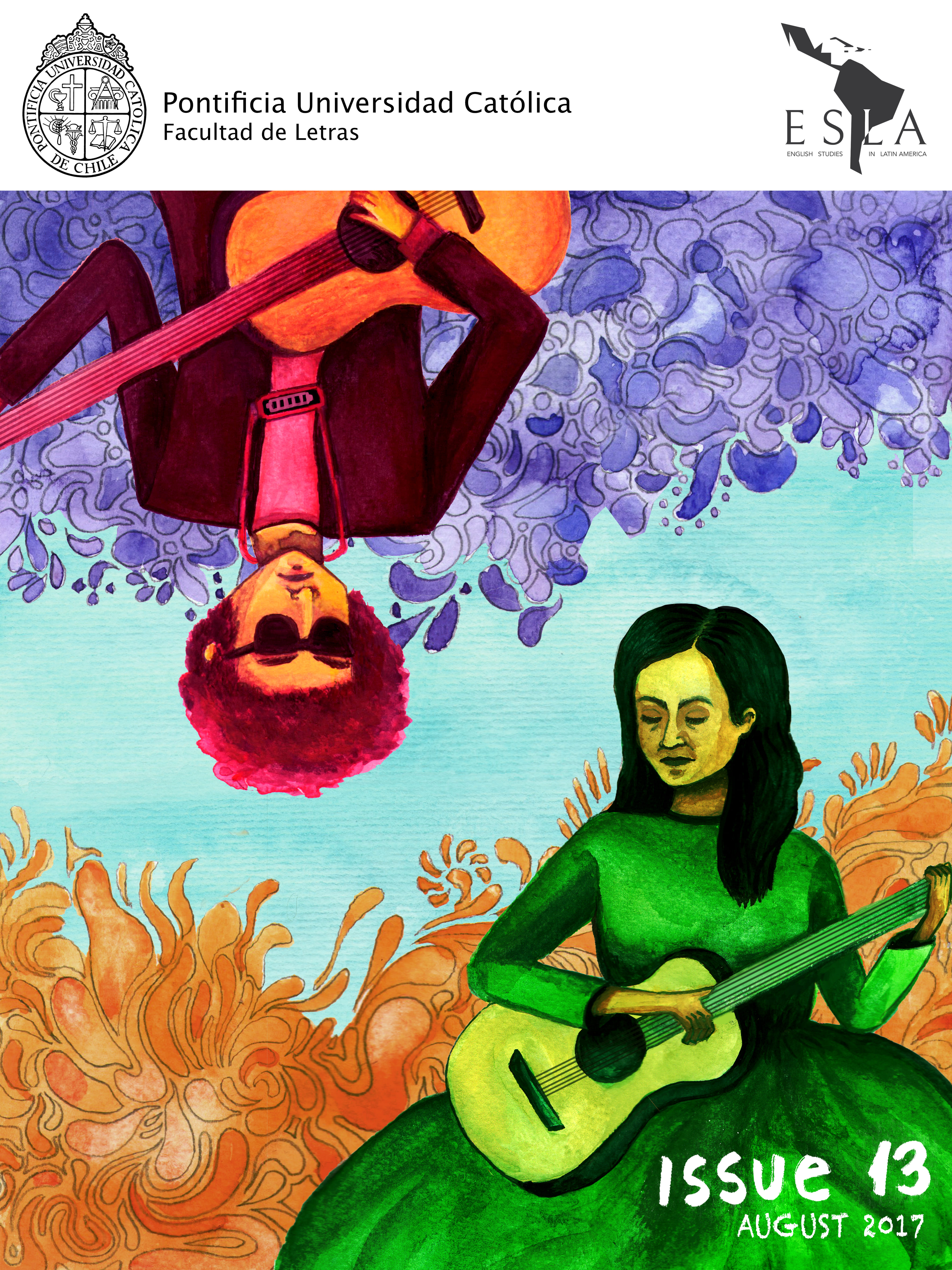Ficciones: Argentina in V. S. Naipaul’s The Return of Eva Perón and Colm Tóibín’s The Story of the Night
DOI:
https://doi.org/10.7764/ESLA.62459Keywords:
Argentina, English literature, Cultural Studies, representationAbstract
Drawing on their travels to Argentina under the last military regime (1976-1983) and its aftermath, V. S. Naipul and Colm Tóibín produced narratives about the country that are worth examining for the different versions of our recent history displayed by both works for an English-speaking readership. In The Return of Eva Perón Naipaul turned his experience of Argentina into a series of virulent journalistic articles ascribing its postcolonial condition mostly to Argentineans themselves. For his part, Tóibín chose Argentina as the bleak backdrop to his first gay novel, The Story of the Night, an inhospitable home in which its main character has to find the fragments of his identity. From a comparative perspective, I briefly describe in this reflective paper the key themes used by Naipaul and Tóibín in their portrayal of Argentina, and I study the divergent points of view towards the times under consideration that the writers adopt in view of their differing ideological agendas. Whereas Naipaul’s travelogue is grounded on its exceptional literary quality but on truths that call to be disputed; even though set in a relatively realistic context, Tóibín’s novel summons the reader to a serious interrogation of the premises upon which the Argentine reality of the 1980s and 1990s is based. I finally discuss the forever-fictional quality attributed to or inflicted on the representation of the country by both journalists and writers. Throughout the text, I keep to a rather intimate tone and to my perspective as a member to the culture under representation.
Downloads
Downloads
Published
Versions
- 2017-08-22 (2)
- 2023-06-22 (1)
How to Cite
Issue
Section
License

This work is licensed under a Creative Commons Attribution-NonCommercial-NoDerivatives 4.0 International License.


